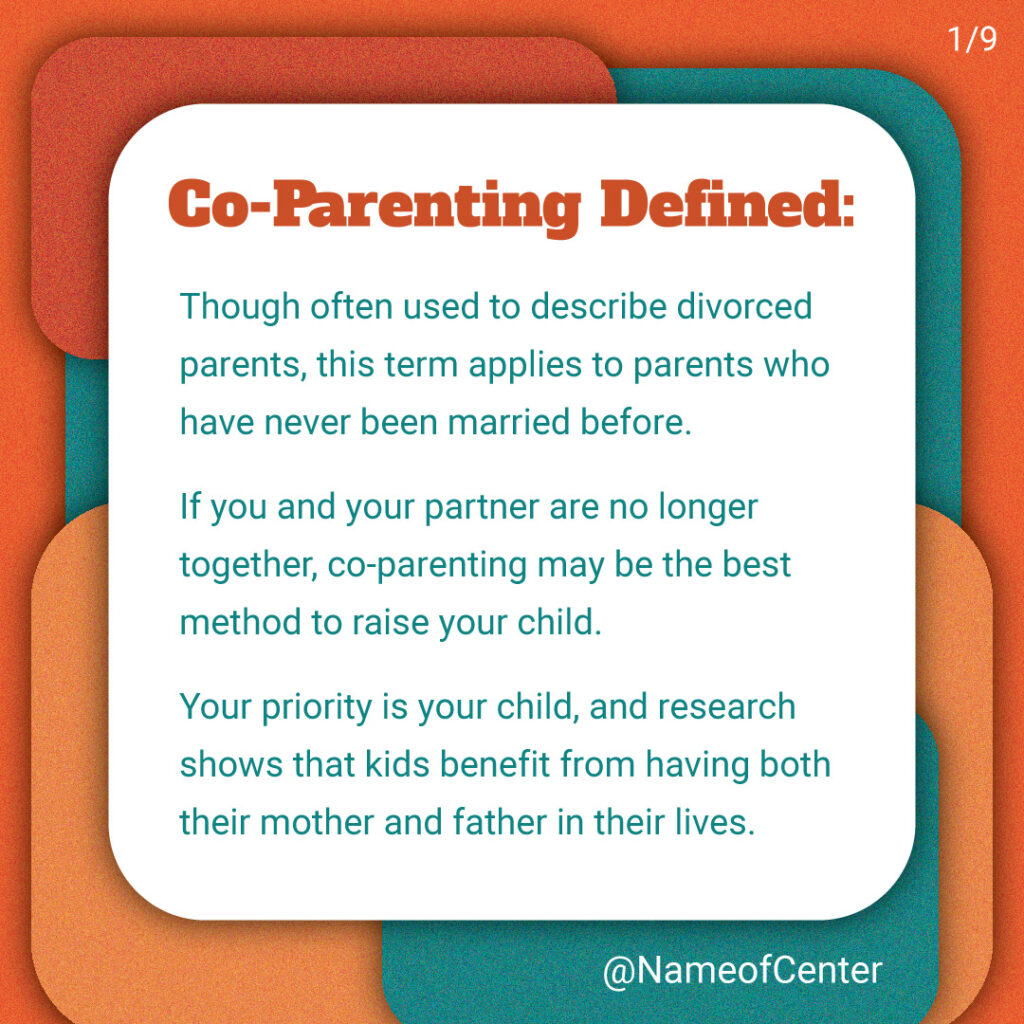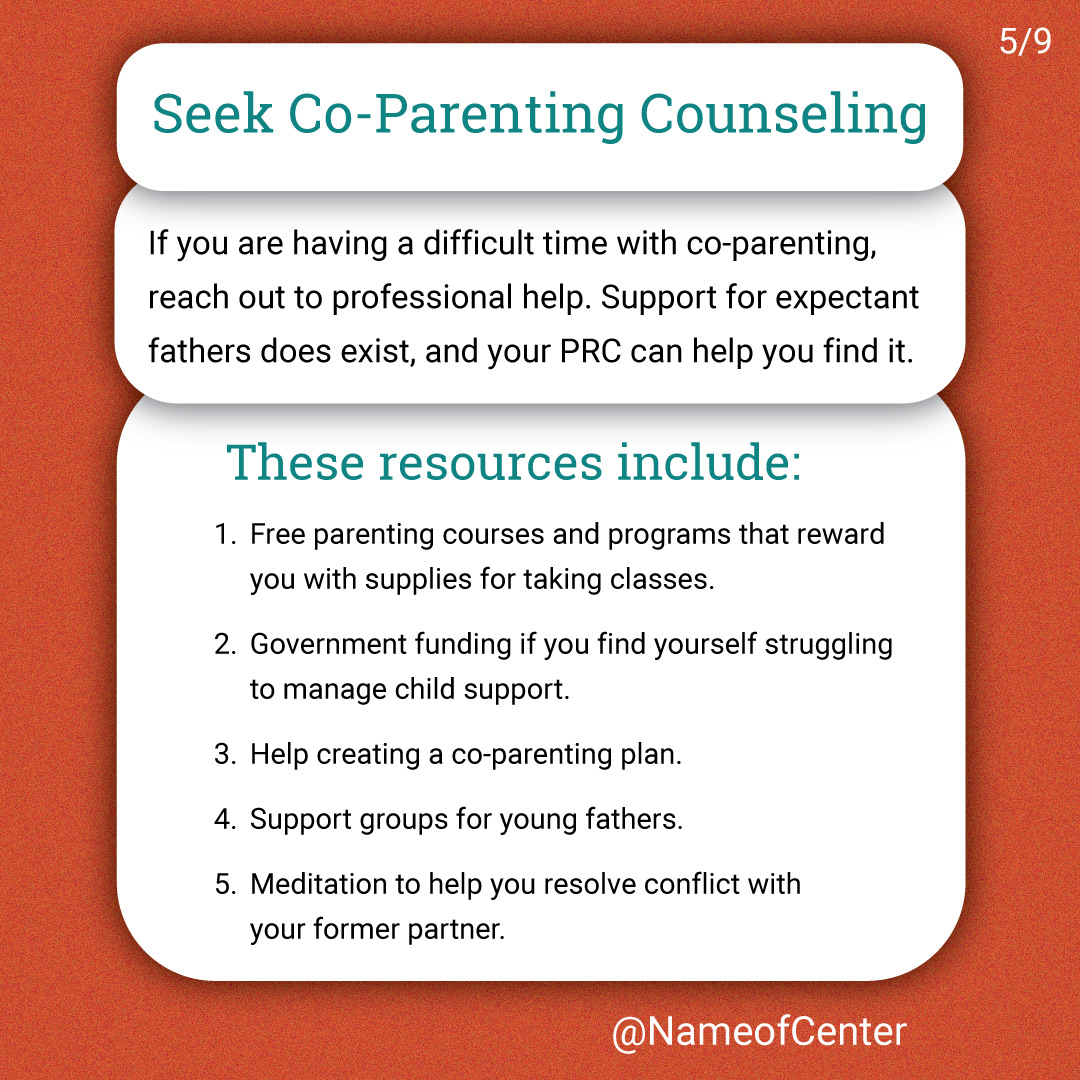Co-Parenting Counseling, A Guide
Co parenting counseling – Co-parenting counseling offers a lifeline for separated or divorced parents navigating the complexities of raising children together. It’s not just about resolving conflicts; it’s about building a collaborative relationship focused on the child’s well-being. This journey explores the process, benefits, and challenges of co-parenting, offering practical strategies and resources to help parents create a more harmonious and supportive environment for their children.
This guide delves into the various approaches used in co-parenting counseling, from conflict resolution techniques to communication strategies. We’ll examine common scenarios where professional guidance proves invaluable, highlighting the role of the counselor in facilitating healthy communication and effective co-parenting plans. We also address the long-term benefits of successful co-parenting, emphasizing the importance of prioritizing children’s needs and considering cultural nuances that may influence the dynamics of the relationship.
Co-Parenting Counseling: A Guide to Shared Parenting
Co-parenting counseling offers support and guidance to parents navigating the complexities of raising children together after separation or divorce. This collaborative approach focuses on improving communication, conflict resolution, and ultimately, the well-being of the children. This guide provides a comprehensive overview of co-parenting counseling, covering various aspects from defining the process to addressing common challenges and long-term success strategies.
Defining Co-Parenting Counseling and its Purpose
Co-parenting counseling is a therapeutic intervention designed to help separated or divorced parents develop effective communication and co-parenting strategies. Its primary purpose is to foster a cooperative relationship focused on the best interests of their children, minimizing conflict and promoting a stable environment. The counseling process often involves individual sessions and joint sessions, tailored to the specific needs of the family.
Different Approaches in Co-Parenting Counseling
Several approaches are utilized in co-parenting counseling, often integrating elements of various therapeutic modalities. These may include collaborative law, mediation, and family therapy techniques. The counselor might employ communication skills training, conflict resolution strategies, and parenting education to equip parents with the tools they need to navigate their shared parenting journey effectively. The specific approach selected will depend on the parents’ individual needs and the nature of their challenges.
Benefits of Co-Parenting Counseling
Seeking co-parenting counseling offers numerous benefits. It provides a structured environment for parents to address their concerns, improve communication, and develop a collaborative co-parenting plan. The process can reduce parental conflict, promote stability for children, and lead to a more harmonious co-parenting relationship, ultimately contributing to the children’s emotional well-being. Reduced legal battles and improved family dynamics are also common outcomes.
Identifying the Need for Co-Parenting Counseling
Recognizing the need for professional guidance is crucial for effective co-parenting. Many scenarios indicate a potential benefit from co-parenting counseling.
Scenarios Benefiting from Co-Parenting Counseling
Common scenarios include frequent arguments about child-rearing decisions, difficulties in scheduling, consistent disagreements over financial support, and a lack of mutual respect and understanding between parents. Cases involving high levels of conflict, threats of legal action, or significant parental alienation warrant professional intervention.
Communication Breakdowns Indicating a Need for Counseling
Examples of communication breakdowns include constant criticism or belittling, refusal to communicate except through lawyers, inability to discuss the child’s needs without escalating into arguments, and consistent attempts to undermine the other parent in front of the child. These patterns often lead to heightened stress and negatively impact the child’s development.
Characteristics of High-Conflict Co-Parenting Relationships
High-conflict co-parenting relationships often exhibit characteristics such as ongoing litigation, frequent changes in custody arrangements, significant parental alienation, and a pervasive atmosphere of hostility and distrust. In such cases, professional intervention is often necessary to de-escalate conflict and establish a more constructive co-parenting dynamic.
The Role of the Co-Parenting Counselor
The co-parenting counselor plays a vital role in guiding parents toward a more functional relationship.
Facilitating Communication Between Parents
Counselors facilitate open and respectful communication by teaching active listening skills, encouraging empathy, and providing a neutral space for parents to express their concerns. They help parents identify and address communication barriers and develop healthier patterns of interaction.
Creating Effective Co-Parenting Plans
Counselors assist parents in developing comprehensive co-parenting plans that address practical matters like scheduling, decision-making, communication protocols, and financial responsibilities. These plans are collaboratively created to ensure both parents feel heard and respected.
Managing Conflict and Promoting Cooperation
Counselors utilize various conflict resolution techniques, such as mediation and negotiation, to help parents manage disagreements constructively. They focus on finding common ground, fostering compromise, and promoting a collaborative approach to parenting.
Effective Communication Strategies in Co-Parenting
Effective communication is the cornerstone of successful co-parenting.
Communication Plan for Minimizing Conflict
A well-structured communication plan might include designating specific communication channels (e.g., email, co-parenting app), establishing clear guidelines for communication frequency and content, and agreeing on a process for resolving disagreements. Regular check-ins and a commitment to respectful dialogue are essential.
Strategies for Respectfully Addressing Disagreements
Parents should practice active listening, avoid personal attacks, focus on the issue at hand, and strive to find mutually acceptable solutions. Compromise and a willingness to see things from the other parent’s perspective are crucial elements of respectful communication.
Communicating About Children’s Needs
Open and honest communication about the child’s needs, including academic progress, social-emotional development, and health concerns, is paramount. Parents should share relevant information promptly and collaboratively make decisions that prioritize the child’s well-being.
Addressing Common Challenges in Co-Parenting: Co Parenting Counseling
Co-parenting presents various challenges that require careful navigation.
Thinking about letting your kids watch The Last of Us? Definitely check out the The Last of Us parents guide first; it’s got all the info you need on mature themes. Then, after tackling that, you can focus on the more mundane, yet equally important, task of choosing diapers. Finding the right fit can be a real challenge, but resources like the information on parent choice diapers can help you navigate the options and find the best fit for your little one.
It’s all part of the parenting journey, right?
Challenges of Maintaining a Healthy Co-Parenting Relationship
Maintaining a healthy co-parenting relationship after separation or divorce can be challenging due to lingering emotional wounds, unresolved conflicts, differing parenting styles, and logistical difficulties. These challenges can impact both the parents and the children.
Impact of Parental Conflict on Children’s Well-being
Parental conflict significantly impacts children’s emotional and psychological well-being. Children exposed to high levels of conflict may experience anxiety, depression, behavioral problems, and difficulties in their social and academic development. Minimizing conflict is crucial for creating a stable and supportive environment for the child.
Managing Disagreements About Child-Rearing Decisions
Disagreements about child-rearing decisions are common. Parents should strive to reach compromises that consider the child’s best interests, prioritizing consistency and stability in their approach. Seeking professional guidance can help navigate these difficult conversations.
Resources and Support for Co-Parents
Several resources are available to support co-parents.
Resources for Co-Parents Seeking Support
These include online support groups, books and articles on co-parenting, workshops and seminars on effective communication and conflict resolution, and legal aid organizations that can provide guidance on legal aspects of co-parenting.
Finding Qualified Co-Parenting Counselors
Finding a qualified co-parenting counselor involves checking credentials, seeking referrals from trusted sources, and scheduling consultations to ensure a good fit. Professional organizations and online directories can assist in locating qualified professionals.
Online Resources and Support Groups
Numerous online resources and support groups offer valuable information, practical tips, and peer support for co-parents. These platforms provide a space for parents to share experiences, learn from others, and access helpful resources.
Long-Term Success in Co-Parenting
Long-term success in co-parenting requires ongoing effort and commitment.
Long-Term Benefits of Successful Co-Parenting
Successful co-parenting leads to improved emotional well-being for both parents and children, reduced stress, enhanced family stability, and stronger parent-child relationships. Children thrive in environments where parents collaborate effectively.
Characteristics of a Healthy and Functional Co-Parenting Relationship
A healthy co-parenting relationship is characterized by respectful communication, shared decision-making, mutual respect, a focus on the child’s best interests, and a willingness to compromise and cooperate.
Maintaining a Positive Co-Parenting Relationship, Co parenting counseling

Maintaining a positive co-parenting relationship requires ongoing commitment to open communication, conflict resolution strategies, and a willingness to adapt as the children grow and their needs change. Regular reflection and adjustments to the co-parenting plan are often necessary.
Legal Considerations in Co-Parenting
Legal agreements play a significant role in co-parenting.
Role of Legal Agreements in Co-Parenting
Legal agreements, such as custody orders and parenting plans, Artikel the legal responsibilities and rights of each parent. These agreements provide a framework for co-parenting and can be helpful in resolving disputes.
Co-Parenting Counseling and Legal Agreements
Co-parenting counseling can support the implementation of legal agreements by helping parents understand their rights and responsibilities, develop effective communication strategies, and resolve disagreements constructively.
Potential Legal Implications of Non-Compliance

Failing to comply with co-parenting agreements can lead to legal consequences, including modifications to the agreement, court-ordered sanctions, and potential impact on custody arrangements. Adherence to legal agreements is crucial for maintaining a stable co-parenting relationship.
The Importance of Putting Children First
Prioritizing children’s needs is paramount in co-parenting.
Prioritizing Children’s Needs in Co-Parenting
Children’s emotional, physical, and psychological well-being should always be the primary focus in co-parenting decisions. Parents should strive to create a stable and supportive environment that minimizes stress and conflict.
Impact of Parental Conflict on Children’s Development
Parental conflict negatively affects children’s development. Children exposed to high levels of conflict may experience emotional distress, behavioral problems, and difficulties in forming healthy relationships.
Thinking about letting your kids watch The Last of Us? Definitely check out the The Last of Us parents guide first – it’s got some seriously intense stuff. It’s helpful to be prepared, especially since you’re also juggling all the everyday stuff, like figuring out which parent choice diapers work best for your little one.
Finding the right balance between entertainment and responsible parenting is a constant challenge, but resources like these make it a little easier.
Shielding Children from Parental Conflict
Parents should strive to shield their children from their conflicts by maintaining respectful communication, avoiding negative comments about the other parent in front of the child, and creating a consistent and supportive home environment for the child in both homes.
Cultural Considerations in Co-Parenting
Cultural norms and values significantly influence co-parenting dynamics.
Cultural Norms and Co-Parenting Dynamics
Different cultures have varying norms and expectations regarding parenting roles, family structures, and communication styles. These cultural differences can influence co-parenting dynamics and may create challenges in communication and collaboration.
Potential Cultural Barriers to Effective Co-Parenting
Cultural barriers may include differing views on child-rearing practices, communication styles, or family involvement in decision-making. Understanding and respecting these cultural differences are crucial for effective co-parenting.
Addressing Cultural Differences in Co-Parenting Relationships
Addressing cultural differences requires open communication, mutual respect, a willingness to learn about each other’s cultural perspectives, and a collaborative approach to finding solutions that accommodate both cultural values and the child’s best interests. Seeking culturally sensitive counseling can be particularly beneficial in these situations.
Ultimately, successful co-parenting isn’t about the absence of conflict, but about the ability to manage disagreements constructively and prioritize the best interests of the child. By utilizing the strategies and resources discussed, parents can transform their co-parenting relationship from a source of stress and conflict into a foundation of support and stability for their children. Remember, seeking professional help is a sign of strength, not weakness, and investing in co-parenting counseling can yield significant long-term benefits for both parents and children.
Share this content:
